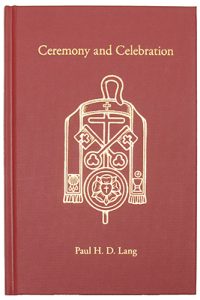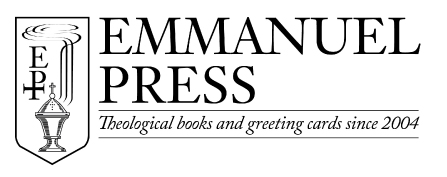 *Note: All books are on sale to celebrate the upcoming release of Apostolic Agenda.
*Note: All books are on sale to celebrate the upcoming release of Apostolic Agenda.
“Our attitude toward human rites and ceremonies is evangelical, not legalistic. Rubrics and directions do not proceed from the Law but from the Gospel. We do not want conformity on the basis of legal compunction, but on the basis of our new life in Jesus Christ by which we are made free from the curse of the Law and are enabled by the Holy Spirit to live more and more in Christian love and liberty.” (p. 22)
“Ritual and ceremonial are component parts of the liturgy. They are materials of the liturgy, the things involved in doing the liturgy….Ritual refers to that part of a divine service which consists of its words, that is, the rite or the order of service….Ceremonial is everything connected with the performance of a rite. It refers not only to bodily expressions, such as speaking, singing, kneeling, bowing, making the sign of the cross, and the outward observance of the church year, but also to the ornaments, symbols, and material objects employed in the church’s worship, for example, the church building, the altar, crucifixes, candles, and vestments. Ceremonies are solemn religious things and actions….Rites and ceremonies are an outward expression of what a church believes and teaches. An ancient Latin formula puts it this way: Lex orandi lex credendi. ‘As we worship so we believe’ or ‘as we believe so we worship.’ The externals in worship are a means of communication which people understand and by which they are often affected more readily and powerfully than by words.” (p. 6, 11)
Ceremony and Celebration by Paul H.D. Lang is an excellent resource for anyone who wants to better understand why we do what we do in the Divine Service. As noted in the Preface, there is “a pious desire of both pastors and parishioners to be reverent in worship. That is the genius of this little book: It speaks to all participants in the Divine Service, not just pastors and theologians.”
The Divine Service is where Christians gather around Word and Sacrament. Its liturgy provides the structure for keeping Christ as the central focus. The words, music, actions, and physical elements of the Divine Service all play a role in the liturgy. Pastors and parishioners join together to receive God’s gifts, each playing a distinct yet integral part as defined by the liturgy, in accordance with God’s will (Heb. 10:25; 1 Cor. 14:40).

